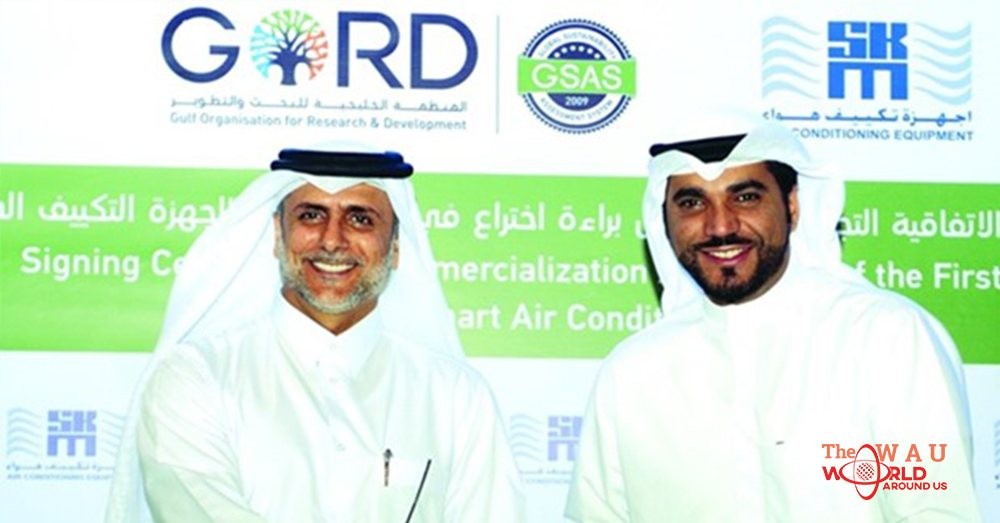In a first for the GCC region, the first Qatari-patent smart air conditioning (AC) system, which can save up to 80% electricity, is expected to hit the market in 2017, Gulf Organisation for Research and Development (GORD) founding chairman Dr Yousef Alhorr announced.
The ‘GORD@smartcool’ is a fully integrated and controlled all-in-one ventilating and AC system that provides 'super-efficient, cost-effective, and sustainable cooling for open or enclosed spaces in moderate, hot or humid climates.'
“The ‘GORD@smartcool, entirely developed in Qatar and part of the country’s contribution in advancing human knowledge in this area, is a breakthrough,” the official told reporters at the opening of the three-day Green Expo Forum 2016 in Doha yesterday.
The event highlighted a signing ceremony between GORD and Sharjah Kuwait Manufacturing (SKM), one of the biggest AC manufacturers in the region, for the commercialisation of GORD@smartcool.
Dr Alhorr noted that initial tests of the new technology showed a cut in energy use between 50% and 75% compared to conventional systems. The 15 TR (52 kW) world’s first unit is installed and tested at GORD’s Technohub located at Qatar Science and Technology Park.
The risk free and chlorofluorocarbon-free energy efficient cooling system can shrink clients’ carbon footprints using cost effective means, he claimed.
Based on the application, GORD@smartcool consists of a single or multi stages that can dehumidify and cool the air to the required comfort level. The system uses recycled water and absorbent materials extracted from rejected desalination brines.
The environment-friendly desiccant has a high affinity for water and capable of absorbing water vapour from their immediate vicinity. It can be fully driven by waste heat and renewables.
GORD will also continue its research, focusing on how to scale the system up for bigger applications in the future, and how to downscale it for home use, according to Dr Alhorr.
“The ‘GORD@smartcool is bigger than a split AC unit in size and SKM will introduce a new line for its manufacturing,” he explained.
“The new cooling system will go into production early next year and available commercially,” he added.
Apart from enclosed spaces such as hotels and other big buildings, typical applications also include open spaces such as football stadia, walkways, souqs, and parks, among others.
The system can also be applied to healthy and efficient fresh-air to fresh-air heat exchange where the use of return air heat recovery is prohibited such as hospitals, health centres, and laboratories.
GORD noted that greenhouses for leisure spaces or crop production is another potential application, which can reduce food imports and strengthen national and regional food security.
*******
GORD has expressed optimism that the new smart air conditioning system will also make renewable energy viable in the GCC region.
According to Dr Alhorr, one of the reasons for not fully utilising renewable energy in this part of the world is due to efficiency issues.
“Renewable energy system here is not good enough to power AC compressors as they consume too much electricity,” he noted. “If you reduce this, renewable energy becomes more viable, more feasible to be used.”
GORD’s smart cooling system, made up of three separate units, will only be using pumps initially instead of the compressor, depending on weather conditions.
Dr Alhorr said the system is intelligent (smart) enough to detect outside temperatures and conditions, triggering its first part to work, which uses less energy.
If it is not enough due to higher humidity or temperatures, the next part will function before triggering the last option – the use of a compressor.
“In one year, the compressor may not be used since other parts of the system are functioning,” he added. “This is a new innovation where we are combining three systems into one package.”
Share This Post















